By Rich Larson, News Director
As the state of Minnesota continues to struggle through a sluggish economy due to the Covid-19 pandemic, State Senator Rich Draheim has some

thoughts on how to put people back to work.
Draheim, a member of the Senate Jobs and Economic Growth Committee, said that a post-Covid economy, and the post-covid job market will look different. More people will be working from home, which will mean less use of office space, which will, in turn lead to fewer custodial and janitorial jobs, and there may be fewer jobs in the service industry for reasons ranging from attrition to changing business models. For any number of reasons, he said, Minnesotans are going to need more job training.
Senator Draheim stopped short of saying that the state should fund every job training program out there, but he said there are plenty of non-profit organizations, referencing a group called Avivo which works to help people dealing with the challenges of addiction and mental health problems to get both counseling and job training, who do work that is worthy of the state’s attention.
“Those are the things I try to lean towards, the programs that offer more career path training. A lot of the beginning jobs are jobs that offer training from the employer, and I don’t know if the state really needs to pay for them. But if we can take someone coming out of prison and turn their life around, that’s money well spent.”
The Senator also said that programs that help veterans like the Helmets-to-Hardhats program sponsored by Senator Mike Goggin of Red Wing, and union apprenticeship programs will be very important as people look for career-path positions.
Jeff Johnson’s full conversation with Senator Rich Draheim can be heard here
City considers waiving Liquor license fees
 On Tuesday night, the city council considered an idea highlighted by Councilor Brad Ness to waive liquor license fees to the current Northfield licensees.
On Tuesday night, the city council considered an idea highlighted by Councilor Brad Ness to waive liquor license fees to the current Northfield licensees.
Last year during the state mandated shutdowns, the city offered prorated refunds to the establishments that sell alcohol in Northfield, and with those licenses coming up for renewal at the end of March, the council discussed the idea of not charging a licensing fee this year.
City Administrator Martig framed the possibility from a financial point of view. He said the city would forfeit about $79,000 dollars in licensing fees, however the city also put an extra $650,000 aside at the end of 2020 in anticipation of cuts from state aid. With the anticipated budget forecast looking much better than expected, Martig said that he was confident that the city could absorb that loss.
“I think the state of our economy, and potentially how the city might be impacted by that, is in a much better place than where we thought it might be at the end of last year. So, we have a greater confidence that the $79,000 could be afforded in the overall budget from those contingency funds.”
Martig said that the hospitality industry is among the hardest hit by the global pandemic, and many cities across the state are offering similar aid to establishments and liquor stores. The members of the council were in such agreement during the brief discussion on the matter that it was decided that an ordinance would be put on the consent agenda for the next meeting on March 2nd.
Historical Society and Carleton College present pandemic podcast
 The Northfield Historical Society has created a new one-episode, standalone podcast exploring the differences and similarities between the 1918 Spanish Influenza epidemic and the Covid-19 pandemic as both were experienced in Northfield.
The Northfield Historical Society has created a new one-episode, standalone podcast exploring the differences and similarities between the 1918 Spanish Influenza epidemic and the Covid-19 pandemic as both were experienced in Northfield.
This podcast is the result of a collaboration between the Historical Society and two classes at Carleton College, Historians for Hire and the Anthropology of Health and Illness. Both classes contacted NHS independently, offering students to help with a research project, and it was decided that a comparative podcast would be the best result.
Northfield Historical Society Executive Director Cathy Osterman wasn’t sure, at first, if the project would work, but she said as it evolved it became clear that his would be a successful project.
“It became this fantastic way for the students to share what they did, and for both of these classes to talk between each other, ask each other questions, and learn from what they had researched, and be able to share that.”
Three students from each class worked on the project. The anthropology students spent the fall evaluating Northfield life during the pandemic, while the historians researched life during the Influenza epidemic. The research was combined and blended in December, and the podcast was recorded shortly thereafter. When the finished product was presented to the historical society, Osterman said she was “blown away” by the work the students had done and how they had brought the two ideas together so seamlessly.

